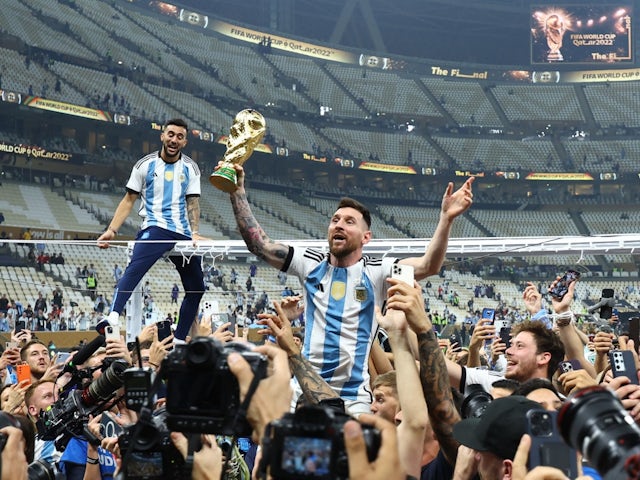1,003 matches. 793 goals. 350 assists.
Lionel Messi's legacy should not have come down to one match in Qatar on Sunday, regardless of the magnitude of it, but for many it did - or at least his status as the greatest player of all time did.
For much of his career the question has been Messi or Cristiano Ronaldo, but a glorious winter for the former combined with a hugely damaging one for the latter has made those comparisons go from justified to near-laughable in the space of just over a month.
Now, there is little debate as to who is the greatest player of their generation, and the conversation has now turned mainly to who is the greatest of all time, with Messi leaving Ronaldo behind to rival Pele and Diego Maradona for the ultimate crown of king of football.
For many, myself included, it was a crown Messi had already worn for a few years, but last night's epic, breathless and unforgettable triumph over France in the World Cup ensured that the strongest counter-argument - that he had never won the biggest prize of all - was obliterated.
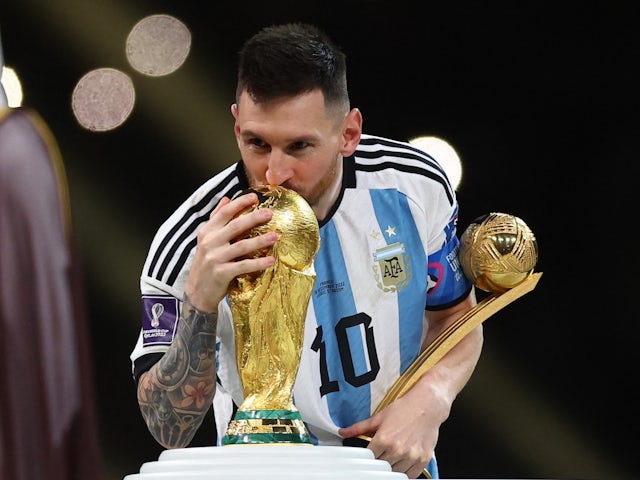 © Reuters
© Reuters
Having eliminated the most compelling argument against his claim to the throne, Messi has now left only intangibles and personal preferences as the possible reasons why anyone would not consider him the best to have ever laced up a pair of boots.
True, Diego Maradona was subjected to much more brutal treatment from defenders, produced scarcely-believable magic on pitches that were closer to a ploughed field than today's perfect surfaces, and did it all with much worse equipment such as boots and balls.
The same is true to an even greater extent for Pele, who was kicked out of both the 1962 and 1966 World Cups early as defenders simply failed to come up with any other way to stop him.
How well would those two fare with today's pitches, today's balls and today's rules? No-one will ever be able to answer that question with any certainty, which is why comparing different generations is so difficult, but it stands to reason that they would have been better still.
Whether they would have been better than Messi is another matter entirely but, using the facts available to us, no player can come close to Messi in such a wide array of defining factors in the GOAT debate.
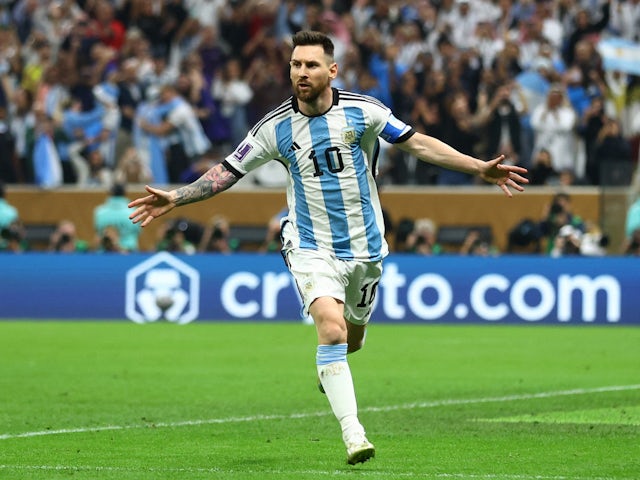 © Reuters
© Reuters
To be considered the best of all time takes the highest level of quality over an extended period of time; Maradona and Pele both had the quality and remarkable longevity, but neither can quite rival Messi's time at the very top - indeed, perhaps only Cristiano Ronaldo can in football history.
At the age of 35, Maradona's international career was over and he was seeing out his playing days with Boca Juniors; similar was true for Pele, who had been retired from Brazil duty for four years and was about to embark on a two-year stint with New York Cosmos in the USA.
Messi has enjoyed his tour de force at the age when his two main GOAT rivals were winding down their careers, producing a string of performances on the biggest stage and under the most crushing pressure that will lead to the Qatar World Cup being remembered as Messi's World Cup.
The Argentine must also now be the front-runner to clinch an astonishing eighth Ballon d'Or next year - still some way short of 41-year-old Sir Stanley Matthews's record for oldest winner of the award but nonetheless an incredible achievement to still be considered the best in the world some 14 years after first being coronated as such, and 16 years after finishing in the top three for the first time.
While Messi's seven Ballons d'Or are a mark of his greatness in this generation, the effectiveness of them compared to Pele and Maradona is depleted by the fact that only European players were eligible for the award while those two were playing.
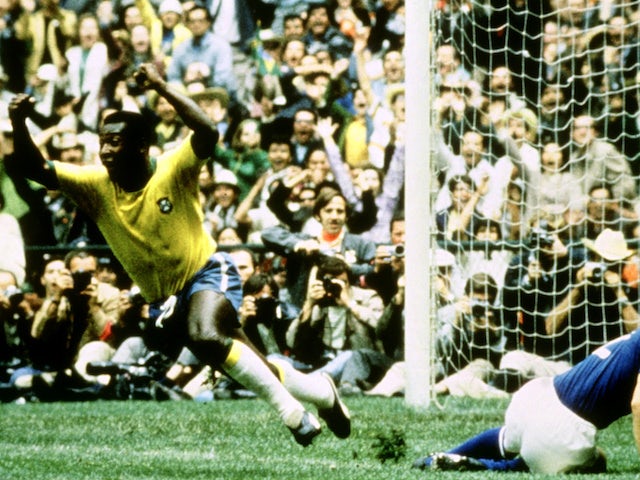 © Reuters
© Reuters
In 2016 France Football did propose revised winners of every award pre-1995 to take other continents into account, though, and on that count Pele was given seven retrospectively (1958-61, 1963-64 and 1970), while Maradona was given it just twice, in 1986 and 1990.
Ultimately those revisions, as with the initial Ballon d'Or, are subjective, but it underlines that an eighth award for Messi next year - should it arrive - would put him out on his own above even Pele if he is not already.
Messi's relentless genius over such a long time is perhaps most easily illustrated by the opening line in this piece: 1,003 games. 793 goals. 350 assists.
That is 1,143 direct goal involvements over 1,003 matches - an average of one goal or assist every 72 minutes over the course of a senior career spanning more than 18 years and counting.
Subjectivity, opinion and personal preference means that there can never be a definitive answer to who is the greatest ever, and there are people out there who will never shake off their belief that Maradona remains above Messi.
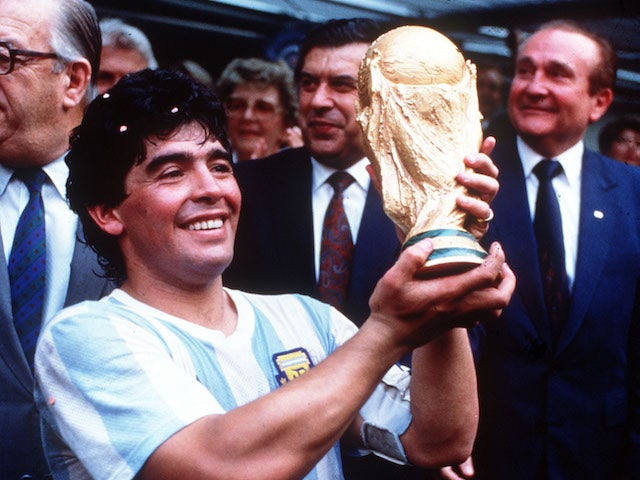 © Reuters
© Reuters
However, after years of detractors pointing out Messi's missing World Cup trophy compared to the silverware the others amassed, perhaps now the focus should switch to the incredible things Messi has achieved which the others did not.
Maradona never scored in a World Cup final. Maradona only once scored more than 30 goals in a season, whereas Messi did so 13 seasons in a row from 2008-09 to 2020-21. Messi's 18-goal tally for Argentina in 2022 alone is more than half of Maradona's total international goals over his entire 17-year career.
For all of his greatness, Pele's Santos 'only' won the Copa Libertadores on two occasions. Maradona never won the European Cup and only won 11 senior trophies in total - the same number of top-flight league titles alone Messi boasts.
Of course, the natural pro-Maradona argument to counteract that is that Argentina's original iconic number 10 played in worse teams, and almost single-handedly dragged Napoli to two league titles, as well as his 1986 World Cup heroics.
It is a fair point, but neither Pele nor Messi's success should be diminished by them making great teams better. The Brazil team of 1970 would not be regarded as one of the best of all time had Pele not been part of it, and the same is true for Messi and the Barcelona team of 2009-12 - they were both the difference-makers to turn a great team into a legendary team.
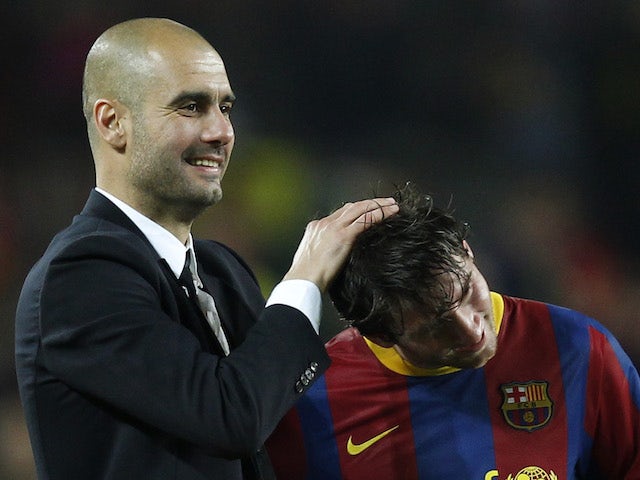 © Reuters
© Reuters
Success and achievement is a huge part of the GOAT debate, and it is an area where Messi is undeniably clear of his two main competitors, even accounting for Pele's three World Cups.
Messi has now achieved everything in football. There are a handful of players that have amassed more trophies than him, but he is near the top of that list and may well climb to the summit as the most decorated footballer ever before he hangs up his boots.
Certainly, Maradona cannot come close to matching his trophy cabinet, and even Pele falls short, while the list of players who have won absolutely everything there is to win in the sport is incredibly short, and that is not even taking into account his individual accolades and stats.
Messi's 793 goals is 449 more than Maradona scored. Pele's record is famously disputed but, only counting official matches, his tally is generally believed to stand at 786.
Messi's 350 assists is more than any other player in the history of football, meaning that he can lay claim to being both one of the greatest goalscorers and goal creators of all time - if not the best in both categories.
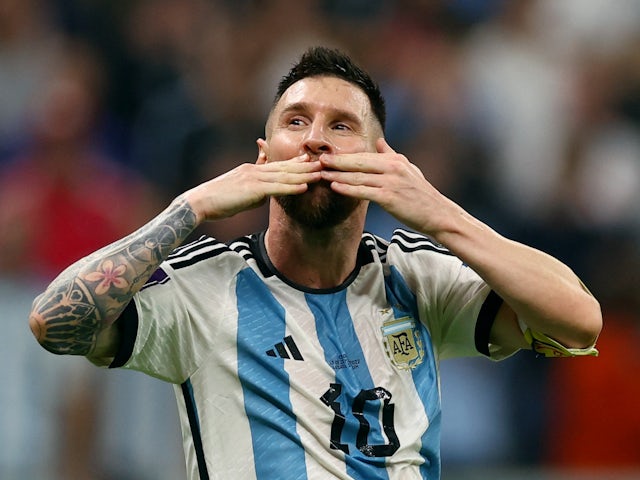 © Reuters
© Reuters
Neither Pele nor Maradona can claim the same; Maradona, along with maybe Messi and Garrincha, will go down as one the best dribblers and creators of all time, while Pele will go down as one of the best scorers of all time, but neither can argue that they are both, like Messi can.
Of course, there is more to football than just goals and assists, but they are the hardest things to produce in the sport and are the main marker when comparing three attacking players.
However, Messi also excels in so many other areas, where Pele and Maradona would not be classed among the greatest ever - at least not across the board.
Messi is perhaps the greatest passer of a ball we have ever seen, one of the best free kick takers, one of the best controllers of a match, now surely one of the best leaders and captains, one of the best team players and one of the most consistent players to have graced a pitch.
As an all-round footballer with attacking qualities across the board, Messi stands alone above Maradona and Pele.
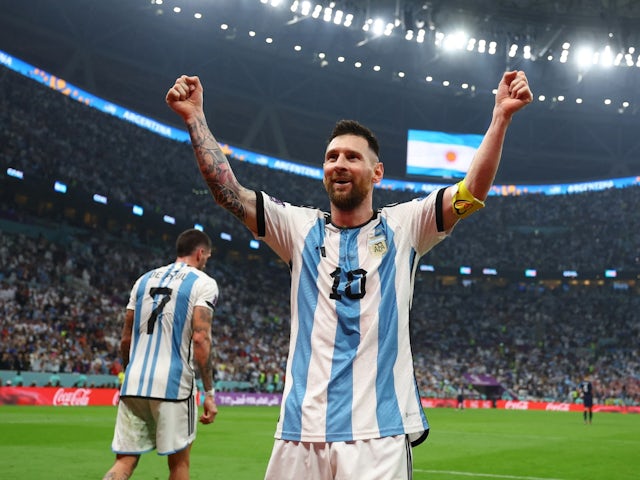
For all of the stats, trophies and accolades one could quote in the arguments for any of the three contenders, often a viewer will make the decision based on how the player made them feel while watching them.
I was not lucky enough to be alive to witness either Pele or Maradona in their primes, but I have trawled through every piece of footage I can find down the years and, while those only give a snapshot of their quality, it is still evident that they were truly special.
Pele in particular pioneered so much - he was doing Cruyff turns long before the Dutch master - and, in a world where footage of great players is now total, the Brazilian king cannot be allowed to drift into the background of this debate purely because of the relative lack of footage from his playing days.
It is fair to say that Pele and Maradona's legacies were enhanced by the World Cup more than anything else, largely because they produced their most iconic moments at a time when those tournaments were rare glimpses the public got to see of the world's best players, before the advent of wall-to-wall TV coverage.
Take their World Cup winners' medals away and it would be interesting to see where people then rank them in the debate for the greatest of all time, whereas Messi was firmly in the conversation long before he scaled the mountain in Qatar.
In terms of a legacy, the importance of producing for one month every four years at a World Cup has arguably diminished over time now that fans have the ability to watch every Messi masterclass for club and country, while the improvement of the Champions League in particular arguably makes that a more accurate and consistent proving ground than a World Cup.
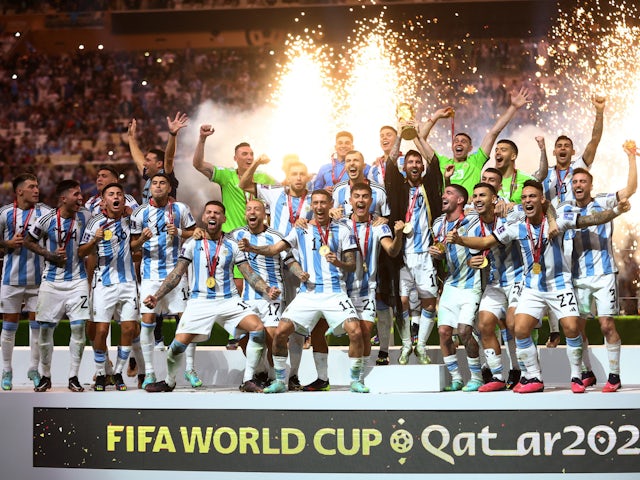 © Reuters
© Reuters
The increased coverage certainly helps Messi's argument for having more iconic moments at critical points in the biggest games than anyone else, and more goosebump-inducing moments which forced onlookers to simply stand up and applaud.
Off the top of my head, I can immediately recall a plethora of occasions when Messi has made me feel something no other footballer has ever made me feel.
His goal against Bayern Munich in the Champions League semi-finals. His goal against Real Madrid in the Champions League semi-finals. His Champions League final goals against Manchester United in 2009 and 2011. His 500th career goal to win El Clasico against Real Madrid at the death. His 600th career goal - an unbelievable long-range free kick against Liverpool in the Champions League. His Maradona-mirroring goal against Getafe. His four goals against Arsenal in the Champions League. His blood-twisting World Cup semi-final assist against Croatia. His deadlock-breaking long-range strike against Mexico. His two goals in a World Cup final.
Notice how all of them, Getafe aside, took place on the biggest stages too.
Many readers will no doubt be able to reel off plenty more such occasions of their own, and those of a certain vintage will have their own lists for Maradona and Pele too, but for me no-one else comes close to Messi when it comes to the special moments he has provided.
It is a debate that will rage on forever, and others may join it in the future - Kylian Mbappe has certainly shown signs that he could muscle his way into the conversation when all is said and done.
However, Messi has at the very least now eliminated the easy, go-to counter-argument to his claim, and those who suggest that he is not the greatest player to have ever played football will now have to work a lot harder to back up why.
For me, Sunday's World Cup triumph only takes him further clear of the chasing pack, but there was no more fitting way for the greatest of all time to cement his crown than to come out on top in arguably the greatest final of all time, on the biggest stage of all.


